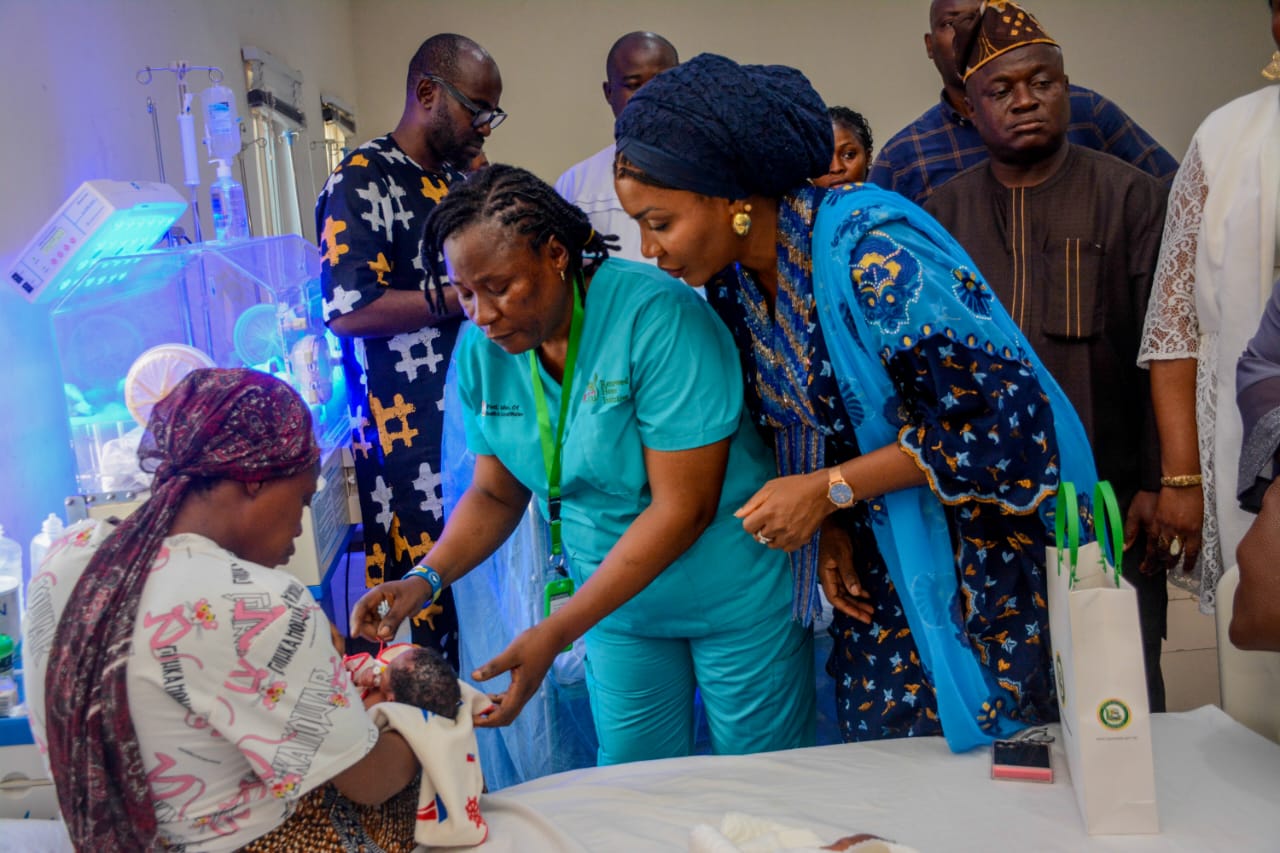Lagos State Governor, Babajide Sanwo-Olu, on Thursday, unveiled the Climate Investment Opportunities Diagnostic (CIOD), a policy document designed to link the state’s environmental goals with actionable investment pathways.
The initiative was launched at the 11th Lagos International Climate Change Summit in Lagos, themed “Blue Economy, Green Money: Financing Africa’s Coastal Resilience and Ocean Innovation.” The CIOD is positioned as a practical investment guide aligning climate priorities with financing solutions.
Sanwo-Olu reaffirmed his administration’s commitment to sustainable growth and coastal resilience, noting that Lagos, “a city built on water, energy and entrepreneurship”, must safeguard its future while harnessing the economic potential of its coastline.
He cited the Great Wall of Lagos as an example of how the state is leveraging blue finance and innovative engineering to transform areas once threatened by ocean surges into prime land, solving environmental and socio-economic challenges simultaneously.
“At last year’s summit, we launched the Lagos Climate Adaptation and Resilience Plan (LCARP), a comprehensive blueprint to turn ambition into action,” he said.
“Building on that, and in collaboration with the International Finance Corporation (IFC), Lagos developed the Climate Investment Opportunities Diagnostic, which identifies opportunities across clean energy, sustainable transport, and resilient infrastructure—sectors that will define the next decade of Lagos’ growth.”
Sanwo-Olu stressed that government funding alone cannot drive the transition.
“We renew our call to global investors: investing in Lagos’ resilience is not philanthropy—it is smart economics. It is an investment in the stability of Africa’s most dynamic economy and the security of the continent’s coastal future.”
In alignment with the global momentum toward COP30, the governor announced the establishment of *Lagos Carbon*, described as Africa’s first domestic environmental market. The platform is expected to channel investment into decarbonisation projects across Lagos State using bank-grade blockchain infrastructure.
According to him, Lagos Carbon will support Nigeria’s Nationally Determined Contributions (NDC) and facilitate the trading of Internationally Transferred Mitigation Outcomes (ITMOs).
The initiative will enable nations and corporations to finance verified emissions reductions and removals across Lagos and Nigeria, thereby driving job creation, technology transfer, and improvements in public well-being.
Earlier, the Commissioner for Environment and Water Resources, Tokunbo Wahab, said the summit reflects Lagos State’s determination to unlock sustainable financing and pioneer innovative solutions to strengthen coastal communities.
He noted that Lagos “sees opportunity where others see risk,” and is reshaping its blue economy into a driver of inclusive economic growth.
Wahab highlighted ongoing projects such as the forthcoming biogas facility at the Ikosi Isheri Fruit Market, developed with the C40 Global Leadership Group. The facility will convert fruit waste into clean energy for lighting, cooking, and device charging, while producing natural fertiliser for farmers.
He added that Lagos remains the top-performing state in Nigeria’s climate governance rankings for the second consecutive year, emphasising the need for increased collaboration among African coastal cities.
“Lagos is ready for investment, ready for innovation, and ready to build resilience that benefits all its people,” he said.
The Minister of Marine and Blue Economy, Gboyega Oyetola, represented by the Director General of the Nigerian Maritime Administration and Safety Agency (NIMASA), Dr. Dayo Mobereola, highlighted ongoing federal reforms, including enhanced maritime security, reduced piracy, improved legal and fiscal frameworks, and support for waste-to-wealth initiatives.
In their goodwill messages, representatives of Osun State and international partners, including the United Kingdom, China, and Germany reaffirmed their commitment to supporting green growth, transforming climate vulnerabilities into opportunities, and advancing the blue economy for a more sustainable future.






